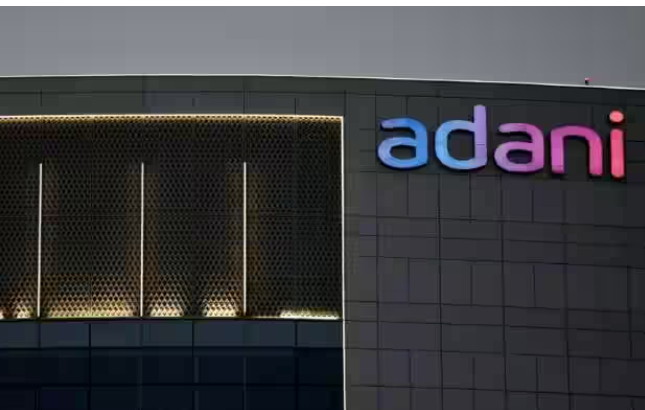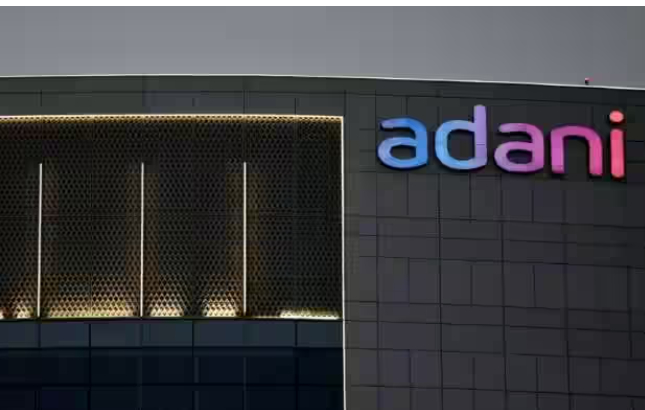Budget
How do promoters obtain money through pledging for the Adani Group loan repayment?
Published
1 year agoon

Upon debt repayment, the commitment on the promoters’ shares of the four Adani Group companies—Adani Enterprises, Adani Ports, Adani Green Energy, and Adani Transmission—will be released.
On Tuesday, the Adani Group revealed that it has already paid back share-based loans totaling Rs 7,374 crore and will do so again by the end of March. In four Adani Group companies—Adani Enterprises, Adani Ports, Adani Green Energy, and Adani Transmission—the repayment will relieve the commitment on the promoters’ shares.
The promoters of the group’s main company Adani Enterprises Ltd. may issue promises on up to 31 million shares, or 4% of the company, while the promoters of Adani Ports and Special Economic Zone Ltd. (APSEZ) may release pledges on 155 million shares, or 11.8 % of the company.
Read Also:- PM Modi honours “Nari Shakti’s” accomplishments on March 8th, International Women’s Day.
Pledges totaling 36 million shares, or 4.5% of the promoters’ interests, will be released in the case of Adani Transmission Ltd. Similar to this, Adani Green Energy Ltd. promises to release about 11 million shares, or 1.2% of promoters’ ownership.”Adani has prepaid $2.016 billion of share-backed financing, together with the repayments completed earlier in the month of February, which is consistent with promoters’ pledge to prepay all share-backed debt before March 31, 2023,” it added.
The group’s net debt as of February was Rs 1.89 trillion.
What is pledged share-based financing?The promoters’ pledge of their shares is referred to as share pledging in the context of the Adani Group. It is a method of raising money.
Here, the promoters use a portion of their shares as collateral with the banks to get loans. It is employed to raise capital without reducing their ownership stake in the company.
The promoters will still keep the interest and retain ownership despite the shares being pledged. They will also be eligible to receive the dividend on the pledged shares.
Yet, pledging can raise the chance of stock price volatility for the corporation. This is mostly due to the fact that the value of the collateral is based on the stock price at the time. If the price declines, the promoters would need to produce more assets as collateral.Promoters may even be required to sell a portion of their stake in order to settle the debt if they are unable to make payments.
Also, the pledge may result in greater volatility if the promoters own a sizable portion of the investment.
In its Financial Stability Report released in December last year, the Reserve Bank of India (RBI) observed, “Pledging of shares by promoters could represent a worry in both, falling or rising market scenarios, when large scale pledging of promoter stock could pose issues for retail investors’ wealth.”
It further stated that 4,274 companies’ promoters had committed all or a portion of their shares out of India’s more than 5,000 listed companies. Of these, promoters of 286 companies had pledged more than 50 per cent of their equity. Approximately 90 per cent of these enterprises belong to the small-cap group.The promoters may borrow money by pledging their stake and then using the money to buy another stake. This might encourage additional stock purchases from other investors.

You may like
-


Sensex and Nifty were unchanged, and 8 out of 10 shares of Adani Group increased as a result
-


Adani Group Starts Debt Buyback for $130 Million,Bonds Rise
-


CNG and PNG will be less expensive because the government changed the method for determining the price of domestic natural gas
-


Why did PM Modi receive a grey tick on Twitter, while the Adani Group received a gold tick?
-


Fabio Paratici, the managing director of Tottenham Hotspur, was given a global FIFA ban
-


TikTok doesn’t cut ties with its Chinese parent company, the US might ban it.
